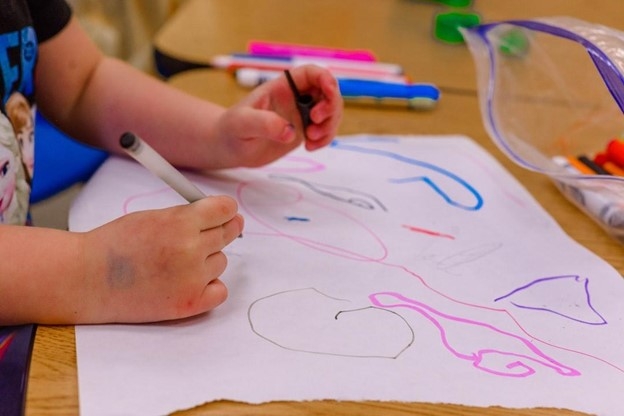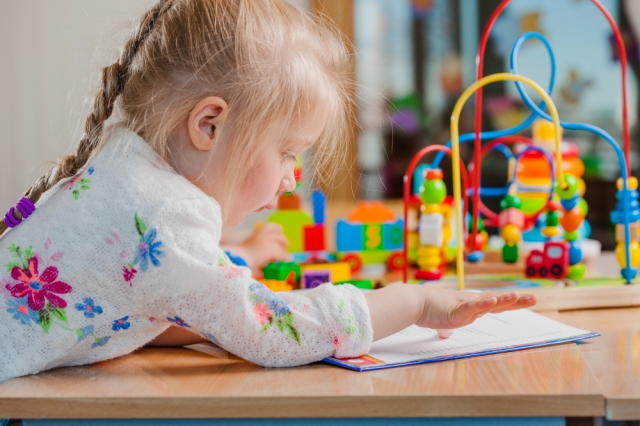- Early childhood development encompasses physical, cognitive, social, and emotional growth from toddlerhood to kindergarten.
- Preschool prepares children for school by teaching socialization, routines, and foundational academic skills.
- Key milestones include enhancing fine motor skills, language and communication abilities, and cognitive problem-solving skills.
- Creative activities and self-help skills promote independence, confidence, and overall development.

Early childhood is a period of rapid growth and development, laying the foundation for a child's future learning and well-being. Understanding the key milestones in physical, cognitive, social, and emotional development can help parents and educators support children as they progress from toddlerhood through kindergarten. This blog will explore the essential skills and milestones that children typically achieve during these formative years.
Physical Growth and Motor Skills
Development of Fine and Gross Motor Skills:
- Fine Motor Skills: These involve the coordination of small muscles, particularly in the hands and fingers, which are crucial for tasks like writing, cutting, and buttoning clothes. Activities such as drawing, puzzles, and building with blocks can enhance these skills.
- Gross Motor Skills: These involve larger muscle groups used for activities like walking, running, and jumping. Encouraging play that includes climbing, hopping, and throwing can support the development of these skills.
Importance of Physical Activities and Play:
- Regular physical activity is essential for maintaining health, building strong bones and muscles, and developing motor skills. Playgrounds, sports, and outdoor activities are excellent ways to keep children active and engaged.
Language and Communication
Vocabulary Expansion and Language Comprehension:
- Toddler Years: This period is marked by a rapid increase in vocabulary and the ability to form simple sentences. Reading aloud, singing, and engaging in conversations can significantly boost language development.
- Preschool Years: Children begin to understand more complex sentences and instructions. Activities like storytelling, asking open-ended questions, and playing word games can further enhance language skills.
Early Literacy Skills and Storytelling:
- Introducing books and storytelling at an early age fosters a love for reading and improves literacy skills. Encourage children to tell their own stories and describe pictures in books to develop their narrative abilities.
Cognitive Development
Problem-Solving and Critical Thinking Skills:
- Children learn to solve problems and think critically through play and exploration. Puzzles, building blocks, and simple experiments can stimulate cognitive development and encourage curiosity.
Introduction to Basic Math and Science Concepts:
- Math Skills: Preschoolers start recognizing numbers, counting objects, and understanding basic concepts like size and shape. Simple activities like counting toys, sorting objects by color or size, and playing with shapes can make learning math fun.
- Science Skills: Exploring the natural world, asking questions, and conducting simple experiments can introduce basic science concepts. Activities like planting seeds, observing insects, and mixing colors are engaging ways to learn about science.
Preparing For School: Essential Skills Your Child Learns In Preschool
Socialization, Following Routines, and Classroom Behavior:
- Preschool teaches children how to interact with peers, follow rules, and participate in group activities. These skills are crucial for adjusting to the structured environment of kindergarten.
Foundational Academic Skills:
- Preschool prepares children for reading and writing by introducing letters, sounds, and basic writing skills. Recognizing their name, understanding the alphabet, and beginning to write letters are key milestones.
Emotional and Social Development
Understanding and Managing Emotions:
- Helping children identify and express their emotions is vital for their emotional development. Techniques such as discussing feelings, using emotion cards, and practicing calming strategies can support this growth.
Building Relationships and Learning to Share and Cooperate:
- Preschool provides opportunities for children to form friendships, share, and work together. Encouraging cooperative play and group activities can enhance these social skills.
Creative Expression
Encouraging Creativity Through Art, Music, and Imaginative Play:
- Creative activities allow children to express themselves and explore their imagination. Providing materials for drawing, painting, and crafting, as well as opportunities for music and role-play, can nurture creativity.
Benefits of Creative Activities on Overall Development:
- Engaging in creative activities supports cognitive, social, and emotional development. It helps children learn to think critically, solve problems, and express their ideas.
Independence and Self-Care
Teaching Self-Help Skills:
- Encouraging children to dress themselves, manage personal hygiene, and help with simple household tasks fosters independence. These skills are essential for their confidence and self-sufficiency.
Promoting Confidence and Autonomy:
- Allowing children to make choices and take responsibility for small tasks helps build their confidence and sense of autonomy. Providing opportunities for decision-making and celebrating their achievements can reinforce these qualities.
Conclusion
Understanding and supporting the key milestones in early childhood development is crucial for helping children thrive as they progress from toddlerhood to kindergarten. By focusing on physical, cognitive, social, and emotional development, parents and educators can provide the foundation children need for future success. Remember, every child develops at their own pace, and creating a supportive and enriching environment is key to fostering their growth.






